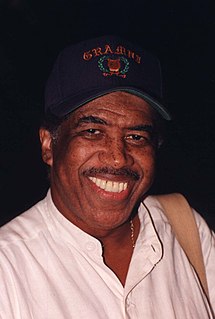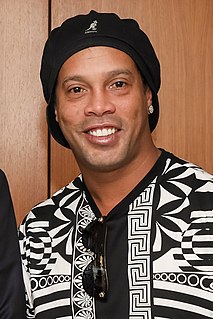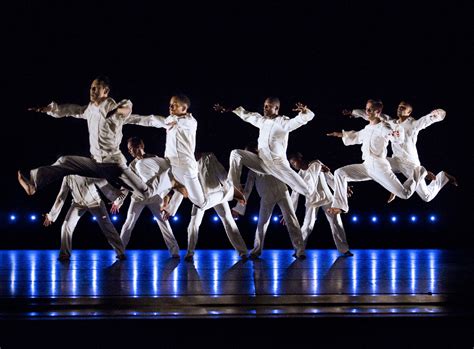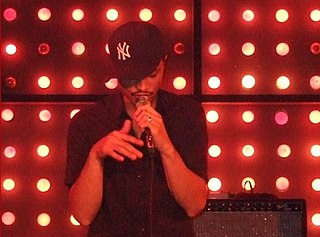A Quote by Wynton Marsalis
When I came to New York, to Brooklyn, I met Alvin Ailey and Stanley Crouch and August Wilson. They were always putting things in a philosophical context. All the great jazz musicians did, too. There was always a sub-context to what they were saying about music even though they would be very down home and earthy. So I started to develop, in addition to my power and ability to simply hear, a way to place myself in a time.
Quote Topics
Ability
About
Addition
Always
August
Brooklyn
Came
Context
Crouch
Develop
Did
Down
Even
Great
Hear
Home
Jazz
Jazz Music
Jazz Musician
Met
Music
Musicians
Myself
New
New York
Philosophical
Place
Power
Putting
Saying
Simply
Stanley
Started
Things
Though
Time
Too
Very
Way
Were
Wilson
Would
Would Be
York
Related Quotes
I have always loved jazz music and as a teen growing up in New York City and then later on as an adult have great memories of the jazz clubs that were all located on 52nd Street. I still catch as many jazz shows as I can when I am in New York. And when I perform, I have my jazz quartet by my side. Jazz musicians keep things spontaneous and very "live," which is the way I like to perform.
I visited New York in '63, intending to move there, but I noticed that what I valued about jazz was being discarded. I ran into `out-to-lunch' free jazz, and the notion that groove was old-fashioned. All around the United States, I could see jazz becoming linear, a horn-player's world. It made me realize that we were not jazz musicians; we were territory musicians in love with all forms of African-American music. All of the musicians I loved were territory musicians, deeply into blues and gospel as well as jazz.
In New York, I was excited about the music in New York because the only music that I was more or less involved with in the South was either country and western or hillbilly music as we used to call it when I was a kid and, ah, gospel. There was no, there was no in between. And when I got to New York all the other musics that's in the world just came into my head whether it was the classics, jazz, I never knew what jazz was about all, had heard anything about jazz.
I like the boundaryless potential you get when you make work for a context that is open to interpretation. Thinking about an art context is too claustrophobic, though. I always hope that at least half my audience is not directly related to the art world. I use art as a balancing act. It's a good way of avoiding everyday chores and social obligations.
Business today is all about improvisation, which is the essence of jazz. Perhaps in the past we could just follow the operating manual and do what we were told, but today the world is too complex and fast. Today it's all about real-time innovation and creativity. Individuals may get hired based on their resumes, but they'll get promoted and reach their dreams based on their ability to create. In that context, being a jazz musician was the best MBA I could have ever received.
Memory is like fiction; or else it's fiction that's like memory. This really came home to me once I started writing fiction, that memory seemd a kind of fiction, or vice versa. Either way, no matter how hard you try to put everything neatly into shape, the context wanders this way and that, until finally the context isn't even there anymore... Warm with life, hopeless unstable.




































